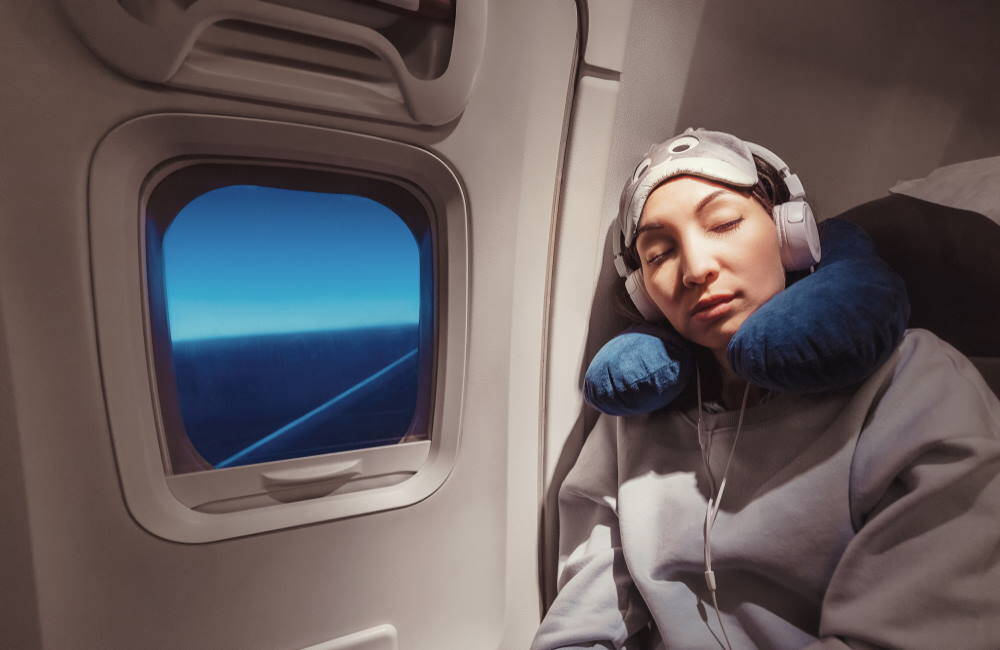While it presents challenges, it’s possible to fly with cystic fibrosis if you plan ahead and carefully follow all the important safety guidelines. Those with cystic fibrosis should not let concerns about travel keep them from taking a vacation or traveling to see loved ones.
The following looks at some of the issues those with CF should keep in mind as they plan for their trip. Whether they do the trip on their own or travel with a flight nurse, these ideas can help better prepare you to fly with cystic fibrosis.
Can I Hire a Nurse to Fly With Me?
Talk to Your Medical Experts
Most people can safely fly with cystic fibrosis. However, some may require carrying oxygen with them. High altitudes can make it more difficult to breathe, especially for those with CF. Your CF health team may want to conduct a high-altitude test to determine if you will need to travel with oxygen. This also is the time to find out the closest CF care facility to your destination.
Packing Medications
The Cystic Fibrosis Foundation provides detailed information on traveling with medication and medical equipment. All medications should get packed in their original containers with clear labels. It’s wise to bring a few extra days of medications in case luggage is delayed or lost. Bringing an extra prescription also provides a backup plan in case your supply runs short.
If you must keep your medication cool, you will need to bring an insulated medical ice pack on the flight. Also, call ahead to your hotel and ask for a refrigerator to store your medication. They sometimes do not charge for this service if they know in advance it is for medication.
Flying with Oxygen & Medications
Health Documentation
Those who fly with cystic fibrosis need an extensive list of health documentation. This includes the following.
- A health summary your doctor signs that provides an overview of your health. It should include your name and date of birth, contact information for your CF care center, known allergies, list of medications and daily therapy.
- Any documentation you need to carry oxygen on your flight. The forms required vary from airline to airline, so it’s important to contact them well in advance and find out what you need.
- If you plan international travel, you may need a customs certificate from your doctor explaining why you need the medical supplies you have for your journey. This should include your name and date of birth, a description of CF, list of your medications, and all medical supplies you have packed for your travel.
- If you plan to visit a theme park, you may need documentation to get a special pass that allows you to skip long lines. You can find out what you need by contacting the theme park in advance.
What is a TSA Notification Card?
Packing Medical Supplies
You should make a list well in advance of the supplies you need for your trip. This should include oral and inhaled medications, vest, nebulizer compressor, neti pot, nutritional therapies and devices (such as a glucose monitor, needles, testing strips, alcohol pads and instruction manuals).
Other items to consider when packing:
- Emergency contacts
- List of doctors who specialize in CF at your destination
- Insurance information (including travel insurance)
- Prepaid phone card to contact your own CF center in case of emergency
- Instructions for medical equipment in case of malfunction
- A calendar of times and details on taking your medications to help those with you if needed
Medical Travel Insurance vs Trip Insurance
During the Flight
Always bring medical equipment onboard your flight, do not attempt to check it. Airlines should not count needed equipment against your allotted number of bags you can carry on a flight. Keep in mind, however, that it must fit under the seat or in overhead storage. Ask to pre-board a flight so you can store all needed supplies without the crush of other passengers. If you have all proper documents, you should have no problem getting everything through airport security and onboard.
Other things to keep in mind during your flight include the following.
- Keep medication with you, including insulin and supplies.
- Watch our sugar levels, and have carbohydrates with you to prevent hyperglycemia and hypoglycemia. Let your traveling companions know the signs of a drop or spike in blood sugar
- Bring snacks with you on your flight, as well as glucose tablets
- Stay hydrated and limit alcohol consumption. Add a pinch of salt to water, or drink energy drinks with salt supplements
- Use diet supplements to ensure you eat the right amount of calories
Some Activities That May Pose a Risk
When thinking about where you want to fly and what you can do when you get there, the CF Foundation provides a list of activities that could pose a problem. They include bungee jumping, which causes rapid pressure changes in the lung, as well as scuba diving and spending time in Jacuzzis or hot tubs. Keeping these ideas in mind can help you safely fly with cystic fibrosis. While it takes a great deal of planning, it pays off in being able to enjoy travel, knowing you have taken all the proper steps.

